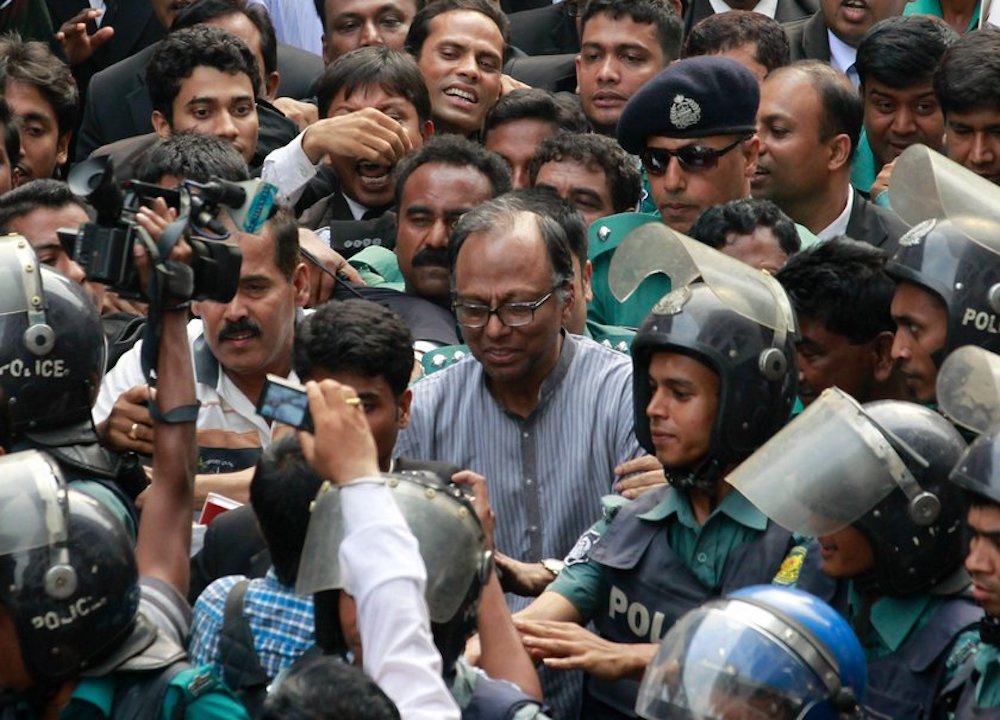Justice is not a privilege; it is a right. And I will not stop until it belongs to everyone.
Justice is not a privilege; it is a right. And I will not stop until it belongs to everyone.
Justice is not a privilege; it is a right. And I will not stop until it belongs to everyone.

The shuttering of press freedom in Bangladesh under the Awami League government, spearheaded by Sheikh Hasina, Amar Desh served as a harsh illustration of the consequences when the BNP-controlled newspaper was shut down.
Amar Desh Newspaper’s Editor Mahmudur Rahman
Amar Desh was always vocal against the ruling party and faced attempts to silence it on numerous occasions. The newspaper lost its license on June 1st, 2010, which marked the death of independent journalism in the country.
Such incidents as the closing of Amar Desh are not one-off occurrences but a reflection of a larger systematic suppression of voices in the country. In doing so, the government is flouting every basic principle of democracy and freedom of speech that any society needs to function healthily.
Independent journalism, even after all the suppression, thrives in the country with other journalists and media personnel being truthful and accountable to the society. Amar Desh’s closing, however, is a reminder to all of us for the continuous fight to have press freedom and the right to not be punished for expressing one’s self.
Recently the Bangladesh Nationalist Party (BNP) held a rally in Dhaka where they protested against a new broadcast policy that they say will infringe on freedom of the press. The opposition claims that the policy, which was approved by the cabinet earlier this month, is outdated and meant to gag the media. As stated by the BNP’s vice-chairman, Shamsher Mobin Chowdhury, “The granting of such power to control media by the government is to make undue democracy and free expression in media unrecognizable.”

Even with the unfavourable weather conditions, over a thousand opposition party followers congregated in Daska to protest the new policy, which they feel advances the idea of a one-party rule. BNP has been openly critical of the ruling Awami League party which is accused of dominating the January national elections. Many of the marchers were convinced that if the BNP comes into power, they would abolish the broadcast policy.
On the other hand, the government is not worried about the policy because their stance is that the provisions are not lawfully enforceable. Hasanul Haq Inu, the Information Minister, insisted that the policy does not have any form of punishment, and the goal was not to control the media. Regardless of the assurances, the policy was believed by opposition groups and civil organistaion to be a of unconstitutional nature intended to eradicate freedom and democracy in the country.
Why did you leave Bangladesh? Come back. First, you have to be judged
Mahmudur Rahman used to speak the truth, he used to speak for the people. That is why this is his fate—Awami League did this. We want justice